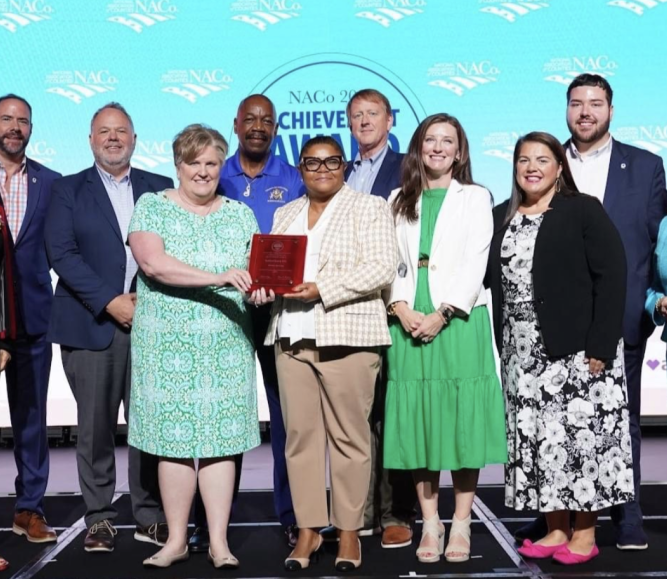Congress reintroduces 9-1-1 SAVES Act
Author

Brett Mattson

Seamus Dowdall

Naomi Freel
Upcoming Events
Related News

Key Takeaways
On January 16, the 9-1-1 Supporting Accurate Views of Emergency Services (SAVES) Act was reintroduced in the U.S. House of Representatives. This legislation aims to officially reclassify 9-1-1 dispatchers as first responders, granting these professionals the recognition they deserve for their vital contributions to public safety.
9-1-1 SAVES Act
The 9-1-1 SAVES Act seeks to correct a long-standing oversight by officially reclassifying 9-1-1 dispatchers as first responders. Currently, dispatchers are excluded from this designation despite their critical role in public safety.
At no cost to taxpayers, the legislation has broad bipartisan support to highlight the indispensable contributions of dispatchers to emergency response systems.
Importance to counties
Counties play a pivotal role in managing and funding 9-1-1 operations. By elevating dispatchers to first responder status, the 9-1-1 SAVES Act is expected to improve recruitment and retention for this profession. The legislation also reinforces the broader importance of county investments in emergency communication systems and personnel.
Building on bipartisan momentum and a track record of unanimous committee support in the 118th Congress, NACo strongly supports this legislation. The 9-1-1 SAVES Act will enhance public safety systems while ensuring no additional costs for counties or their intergovernmental partners.
County News
North Carolina county decreases 911 non-emergency calls by connecting residents to services they need
Guilford County, N.C. was inundated with 911 calls until the county connected residents to resources, including primary care physicians and access to food, so they don’t feel the need to call an emergency line.

Related News

National Association of Counties Launches Initiative to Strengthen County Human Services Systems
The National Association of Counties (NACo) announces the launch of the Transforming Human Services Initiative, a new effort to help counties modernize benefits administration, integrate service delivery systems and strengthen county capacity to fulfill our responsibility as America’s safety net for children and families.

Information-sharing bill could protect court workers
The Countering Threats and Attacks on Our Judges Act could provide more than 30,000 state and local judges with access to security assessments, best practices and a database of threats made against colleagues in the justice field.

California counties fight agricultural crime
Sheriffs' offices and prosecutors in California's central valley make specific efforts to prevent and prosecute crimes against the agricultural community.